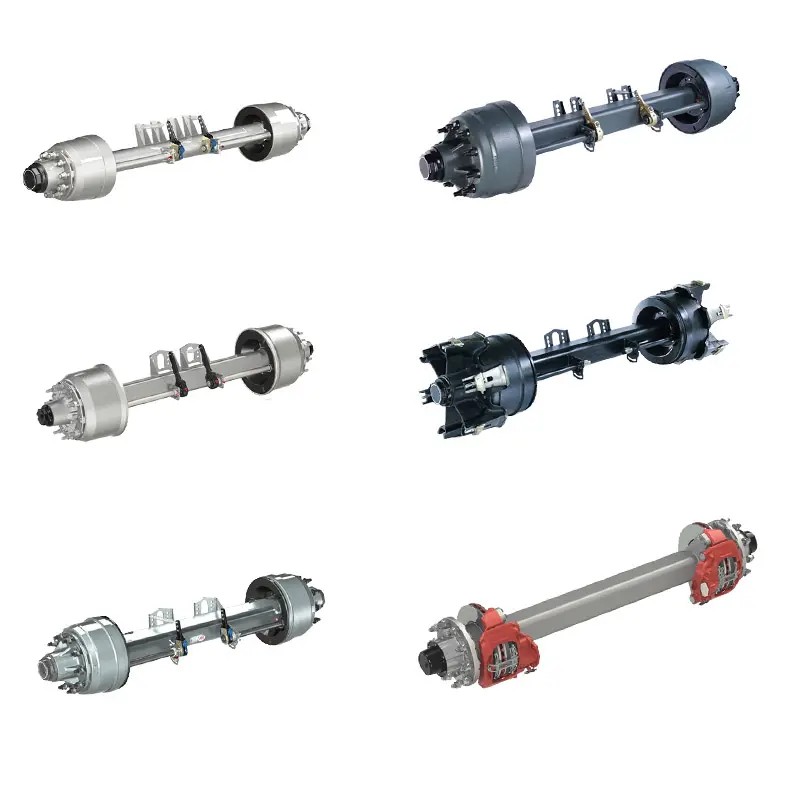What Makes a High-Quality Axle Shaft Essential for Vehicle Performance?
2025-09-09
When it comes to vehicle performance, durability, and safety, the axle shaft plays a vital role. As one of the core components of the drivetrain system, it transfers torque from the differential to the wheels, ensuring that your vehicle moves smoothly and efficiently. Choosing the right axle shaft directly impacts handling, stability, and load-bearing capabilities.
Understanding the Role of an Axle Shaft
The axle shaft is an integral part of a vehicle’s drivetrain system. It connects the wheels to the differential, enabling power transmission from the engine to the tires. Without a properly functioning axle shaft, the wheels cannot rotate effectively, leading to reduced performance and compromised safety.
What Is an Axle Shaft?
An axle shaft is a rotating component designed to deliver torque from the differential to the wheels. It must withstand heavy loads, extreme torsional stress, and various driving conditions while maintaining its structural integrity.
Why the Axle Shaft Is Critical
-
Power Transmission – Delivers torque from the engine to the wheels efficiently.
-
Load Bearing – Supports the weight of the vehicle and passengers.
-
Stability and Handling – Maintains wheel alignment and driving balance.
-
Durability Under Stress – Designed to resist bending, twisting, and fatigue under demanding conditions.
Types of Axle Shafts
There are several types of axle shafts, each designed for specific vehicle applications:
-
Live Axle – Provides both torque transmission and support.
-
Dead Axle – Supports weight but does not transfer torque.
-
Semi-Floating Axle – Common in light-duty trucks, carries both weight and power transmission.
-
Full-Floating Axle – Used in heavy-duty vehicles, handles extreme loads and offers superior durability.
Technical Specifications and Product Parameters
Selecting the right axle shaft requires understanding its technical parameters. At Lano, we engineer axle shafts using advanced manufacturing processes, premium materials, and strict quality control to ensure exceptional performance.
| Parameter | Specification Options | Description |
|---|---|---|
| Material | 42CrMo / 40Cr / Alloy Steel | High-strength steel for superior durability |
| Surface Treatment | Heat Treatment + Nitriding + Phosphate | Enhances wear resistance and corrosion protection |
| Torque Capacity | 1,000 Nm – 6,500 Nm | Designed to withstand various driving conditions |
| Shaft Diameter | 25 mm – 55 mm | Adjustable based on vehicle type and load |
| Length | Customizable | Precision engineering to match specific models |
| Hardness | HRC 32 – 42 | Optimized balance between toughness and strength |
| Application | Passenger Cars, SUVs, Light Trucks, Heavy Trucks | Versatile use for multiple vehicle categories |
Why Material Selection Matters
The choice of material is crucial in ensuring the axle shaft’s strength and longevity. Alloy steels like 42CrMo offer high fatigue resistance, while 40Cr provides an excellent balance between toughness and machinability.
Advanced Manufacturing Techniques
At Lano, our axle shafts are produced using cutting-edge technologies, including:
-
CNC machining for precision tolerances.
-
Automated heat treatment to enhance hardness.
-
Ultrasonic flaw detection to ensure zero defects.
-
Surface coating to improve corrosion resistance.
How to Choose the Right Axle Shaft
Choosing the right axle shaft involves evaluating several factors based on your vehicle type, driving style, and load requirements.
Match the Shaft to Vehicle Specifications
Each vehicle requires a specific axle shaft configuration based on engine output, wheel size, and suspension setup. Always consult the manufacturer's specifications or a trusted supplier like Lano to ensure compatibility.
Consider Driving Conditions
-
Off-Road Use – Requires reinforced shafts with superior torsional strength.
-
Highway Driving – Prioritizes smooth torque delivery and fuel efficiency.
-
Heavy-Duty Applications – Demands full-floating axles for maximum load capacity.
Evaluate Quality Certifications
Look for axle shafts that meet or exceed international standards such as ISO/TS 16949, SAE, or DIN to guarantee performance and safety.
Benefits of Choosing a Premium Axle Shaft
-
Enhanced vehicle stability.
-
Reduced risk of mechanical failure.
-
Longer service life and lower maintenance costs.
-
Improved driving comfort and handling.
Frequently Asked Questions About Axle Shafts
Q1: How do I know if my axle shaft needs replacement?
Answer: Common signs include clicking or clunking noises when turning, noticeable vibrations during acceleration, leaking grease near the wheel hub, or visible damage to the CV boots. If you experience any of these symptoms, a thorough inspection is recommended to avoid further drivetrain damage.
Q2: What is the difference between a semi-floating and a full-floating axle shaft?
Answer: A semi-floating axle shaft supports both vehicle weight and torque transmission, making it suitable for light-duty applications. In contrast, a full-floating axle handles only torque transmission, with the wheel hub carrying the vehicle’s weight. Full-floating designs are commonly used in heavy-duty trucks and off-road vehicles due to their superior load-bearing capacity and durability.
Why Choose Lano for Your Axle Shaft Needs
A high-quality axle shaft is the backbone of a reliable and safe vehicle. From material selection and manufacturing precision to surface treatment and durability, every detail matters in ensuring top performance. Lano specializes in producing premium axle shafts that meet international standards and deliver unmatched quality across a wide range of vehicle applications.
Whether you require custom specifications or need a trusted supplier for bulk orders, Lano provides tailored solutions backed by two decades of engineering expertise. For inquiries, technical support, or to request a quotation, contact us today and experience the Lano difference.



